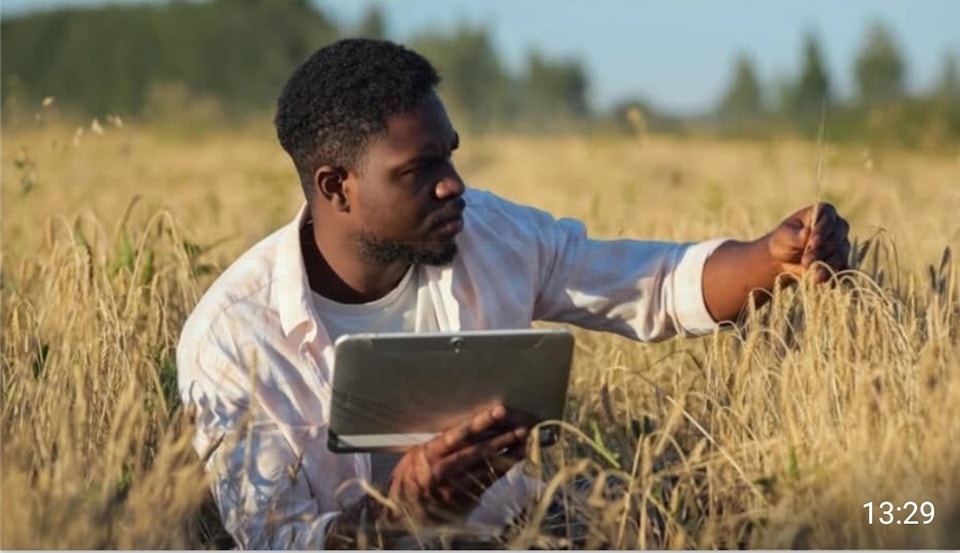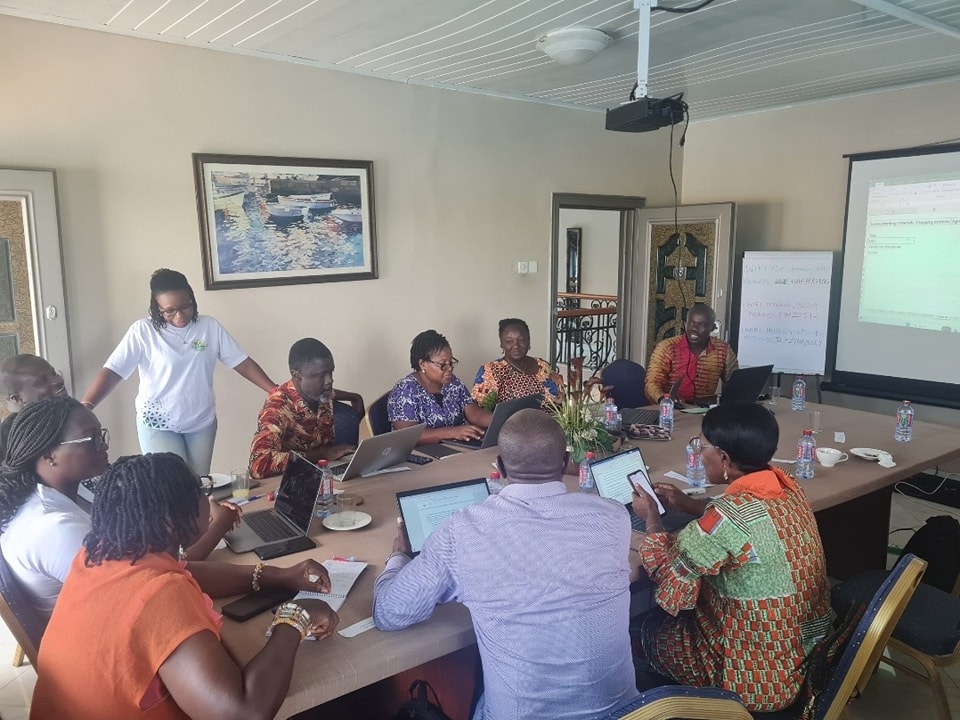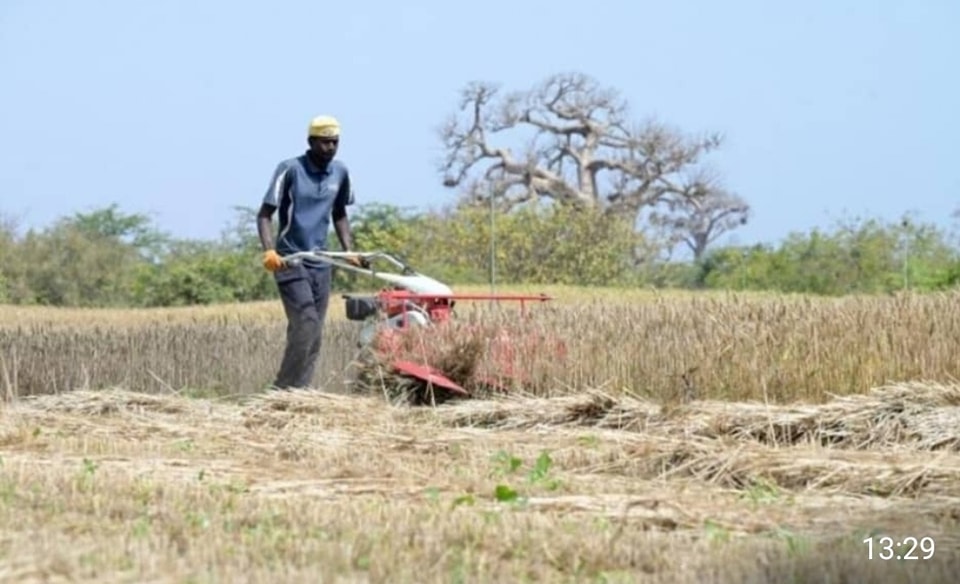FSRP LEADS TEAM OF GHANAIAN & INTERNATIONAL EXPERTS TO ADVANCE INNOVATIONS & SMART TECHNOLOGIES (FOR 240,000 FARMERS)
The West Africa Food System Resilience Programme (FSRP Ghana) is leading a team of scientists, practitioners, extensionists, value chain actors, institutional representatives and other stakeholders to identify, review and select locally developed, tried and tested innovations and technologies for smart agricultural practice in Ghana. They are also examining locally applicable technologies developed by FSRP’s regional research partners - West and Central African Council for Agricultural Research and Development (CORAF) and CGIAR - a consortium of international agricultural research institutions. The exercise is in line with the implementation of a key FSRP objective of promoting at least 15 climate-smart, nutrition-sensitive and youth/gender friendly technological innovations for adoption by 240,000 beneficiaries in the FSRP selected value chains.
TASK TEAM
FSRP assembled the experts from key institutions including: Women In Agriculture Development (WIAD) of the Ministry of Food & Agriculture (MOFA), the Directorate of Agric Extension Services (DAES-MOFA), the Animal Production Directorate (APD-MOFA), Directorate of Crop Services (DCS-MOFA), Food Research Institute of the Council for Scientific & Industrial Research (FRI-CSIR), and CGIAR – Consultative Group for International Agriculture Research Centers represented by – AICCRA (Accelerating Impacts of CGIAR Climate Research for Africa).
ACTION POINTS
Based on experiences and interactions with local and foreign stakeholders, the experts shared knowledge on innovative agricultural technologies they have researched, developed, tried and tested. These were followed by debates and deliberations on the implications, challenges, and opportunities of the presented technologies. The experts further dissected advances in genetic engineering - including plant and animal breeding; sustainable crop and animal production systems; advances in animal health; sustainable agroecology and agroforestry engineering technologies - including mechanization and irrigation, among a range of subjects.
The team has so far developed the first draft of a bundle of technologies (a bouquet of technologies across the FSRP value chains - of Rice, Maize, Soyabeans, Poultry and Tomatoes) from land preparation to waste management.

COST-BENEFIT ANALYSIS
The National Coordinator of FSRP- Ghana, Osei Owusu Agyeman urged the think tank to factor-in the cost-benefit analysis of adoption and utilization of these new technologies. This, he said, would enable the potential beneficiaries and consumers make better assessment and comparison with existing technologies, mindful of the themes on which activities of FSRP- Ghana is anchored: SUSTAINABILITY, OWNERSHIP and PUBLIC-PRIVATE ENGAGEMENT. “We should at all times think about how to attract the private sector interest in all we do”, he added.

NEXT STEPS
To ensure enhanced visibility and understanding of innovative agricultural technologies among the actors, FSRP would promote increased awareness and interest in the adoption of the new agricultural technologies among its priority commodities. In line with this, a catalogue of appropriate technologies to be disseminated by FSRP and MOFA would be developed, training protocols would be updated, on-farm demonstrations would be set up; and manuals and demonstration videos would be produced to train farmers on how to apply these innovations.
The team is also set to identify opportunities for future innovations development and opportunities for devising scaling pathways for these technologies in the agricultural sector.
MEMBERS
In the team were: Mr. Philip Laryea, FSRP Operations Manager; Dr. Stephen Yeboah and Ms. Joyce Haleegoah of CSIR Crop Research Institute, Ms. Alice Dawson - Women In Agriculture Development (WIAD), Ms. Prospera Anku - Directorate of Agric Extension Services (DAES), Ms. Mavis Afutu - Animal Production Directorate (APD), Ms. Janet Mensah - Directorate of Crop Services (DCS); Mr. Papa Toah - Food Research Institute of the Council for Scientific & Industrial Research (FRI-CSIR); Ms. Faustina Obeng Adoma – AICCRA (Accelerating Impacts of CGIAR Climate Research for Africa) a subsidiary of CGIAR – Consultative Group for International Agriculture Research Centers; Mr. Richard Appoh Department of Agric Extension, University of Ghana;
OVERVIEW
The agricultural sector faces numerous challenges, including climate change, resource constraints, and the need for increased productivity to meet growing food demands. To address these challenges, several innovative technologies have been developed by actors across the agricultural value chain. However, there is often a gap between the development of these technologies and their adoption in the field. One of the key indicators of FSRP is the promotion - for adoption - of at least fifteen (15) technologies that are either climate-smart, nutrition-sensitive, or youth & gender-sensitive. It is expected that 240,000 people would have adopted such technologies by the end of the project.
ABOUT FSRP
The West Africa Food System Resilience Programme (FSRP) is a World Bank funded program, promoted by ECOWAS for participating countries. It is to strengthen food system risk management, improve the sustainability of the agricultural productive base and harmonize agricultural markets in the West African sub region. Participating countries include Burkina Faso, Mali, Niger, Chad, Sierra Leone, Togo and Chad. In Ghana, FSRP which is being implemented by the Ministry of Food & Agriculture, is focusing on the intensified production, marketing and consumption of wholesome Rice, Maize, Broiler Poultry, Soyabeans (for the poultry) and Tomatoes.
[Accra; June 2024]


Leave a comment
Comments (0)
No comments yet. Be the first to comment!